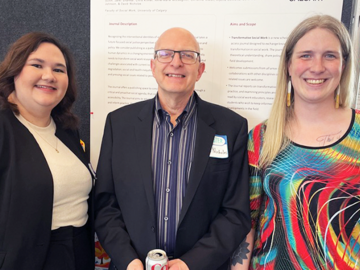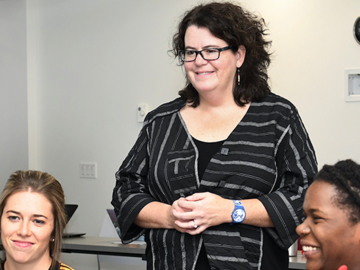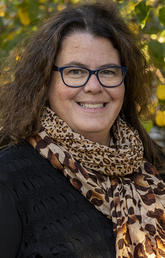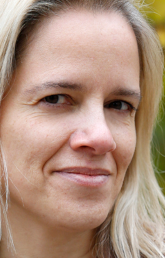May 10, 2023
New social work journal aims to capture change, as it's happening
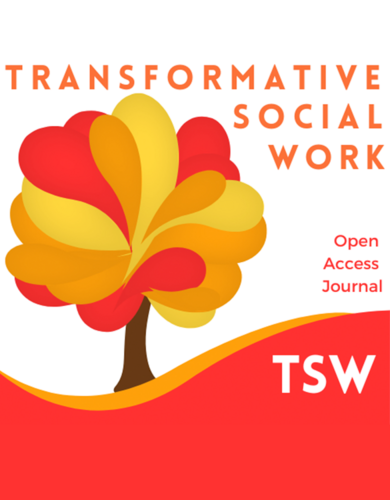
Change can be hard to spot as it’s happening. It often seeps between the gaps of our siloed disciplines, making unlikely connections until it suddenly coalesces into an innovative, world-changing idea.
The new Transformative Social Work journal from the University of Calgary Faculty of Social Work is hoping to capture change as it’s happening by documenting best practices, promising approaches, and innovative research — especially those ideas that happen at the margins and intersections of scholarship and life.
As editor Dr. Julie Drolet, PhD, RSW, a former Killam research excellence laureate says, “Transformative Social Work is a scholarly refereed journal that invites ‘narrative-makers’ to engage in ‘transforming social work’ through a critical and proactive social agenda.”
Transformative Social Work brings scholarship, research, education, practice, policy and lived experience together with the goal of creating a holistic perspective on the critical social issues facing individuals and their communities.
“As the title suggests, the primary goal of the journal is change. Transformative change,” says Dr. David Nicholas, PHD, social work’s associate dean of research and partnerships. “And we see this transformative change happening on a number of levels, from the most pressing issues we’re facing as a society, to transforming practice in social work, allied health fields and human services, to transforming student experience.”
Journal also transformative for students
To do this work, the faculty’s journal is employing several strategies. First, the journal is explicitly designed to capture the voices and perspectives of everyone — from community members and service users to social workers and other allied health and human services professionals.
Second, the journal, which is hosted on the University of Calgary Libraries site, is completely open access — free for authors to submit and readers to read.
And third, the journal is open to student contributions. Students can submit papers and more important, they can be involved in the editorial side of the publication, providing amazing experience and insight into the world of research, early in their academic careers. Drolet says:
One of the most exciting things, for me, is that Transformative Social Work will create so many new training and mentorship opportunities for students.
"They’ll be involved in the development and management of the journal and have the opportunity to acquire new skills in academic writing and publishing, policy and practice excellence, as well as disciplinary leadership.”
The journal aligns with one of Drolet’s primary research interests, the massive SSHRC-funded Transforming the Field Education Landscape (TFEL) project. TFEL is a partnership focused on creating new training and mentorship opportunities to capture field innovation and promising practices to better prepare the next generation of social workers in Canada.
“For me, as a current student, the incorporation of students is a crucial part of the transformative aspect of this journal,” says Stefanie Desrochers, who is helping to co-ordinate the journal’s launch. Desrochers is a Master of Social Work student who is just getting started in her research career with her thesis, focused on understanding how LGBTQ2S+ adults’ experiences with psychedelic drugs have affected their experiences of sex, gender, and sexuality.
She believes the journal will provide invaluable insight and experience to generations of future students: “As we (students) go through our social work education, we often get frontline experience in the field, through our practicums. We also get a lot of theory. But understanding the aspect of knowledge, dissemination, and creating communities of sharing knowledge … Making that connection between the ‘Ivory Tower’ and the people on the front lines is, I think, key.
"So, approaching students at the beginning of their careers and helping them to see how integral the sharing and creation of knowledge is to social work is an awesome opportunity for students that Isn't typically available.”
New 'Inter-Journal' looks to capture many different perspectives
Submitting an actual academic paper to an academic journal is likely pretty daunting to social workers and allied health professionals, many of whom probably still wake in a cold sweat with nightmares about incorrectly formatting APA or Chicago style! To make things easier, Transformative Social Work includes several submission avenues including the opportunity to share shorter submissions, including examples of current issues, case studies, reports, voices from the field, or research in progress.
There is a category for practitioners to share professional practice or experience from the frontlines. Letters to the editor on any subject are also accepted. The hope is to build a body of knowledge and sharing strengthened by the perspective of varied lenses.
“I often joke that the Transformative Social Work Journal is really the Inter-Journal,” says Hilary Nelson. Nelson, who is completing her Master of Social Work in international and community development, has been part of the new journal’s development since its inception and is excited to see it finally coming to life.
“It's creating those inter-collaborations,” she says, “that acknowledgment of intersectional identities, all those connections that tie us together as a society and between individuals, and trying to bolster those, so we have those lines of communication and support open.”
Call for submissions: Special issues on the impact of COVID-19, and social work field education
Besides the inaugural edition, the journal is currently accepting submissions for two special issues. The first is a call for papers on the impact of the COVID-19 pandemic (deadline May 31). Suggested areas of focus include pandemic outcomes and recovery strategies as well as recommendations for social work and communities more broadly, in the event of another pandemic or health emergency.
The next special issue will focus on social work field education (deadline July 31). Suggested topics relating to field education could include innovative approaches, promising and wise practices, challenges and opportunities, impact on social work practice and outcomes, equity, diversity, and inclusion in field education, Indigenous field education, green social work, and transformative practices and policies.
The goal is to capture change as it elusively flits around the margins of academics and best practices. It’s an approach that is sorely needed now more than ever.
“My background is as a high school teacher,” says Desrochers. “I came into social work after about 10 years in the classroom, and one thing that I've noticed between these two different professions is how much shared ground there actually is, and it’s a bit sad to me that the two disciplines don't talk.
"We don't have these conversations between disciplines that are often serving the same populations. That we’re not widening that sphere and opening it to include more voices. I think this journal will be a good way to get different perspectives, to see what social work is doing well, while benefiting from learning what other disciplines are doing.”
University of Calgary Faculty of Social Work is Canada's Innovative School of Social Work. We are the largest school of social work and a perennial North American leader in creating impactful new knowledge through research. We educate social workers at our campuses across Alberta, and across Canada with our fully online programs.

